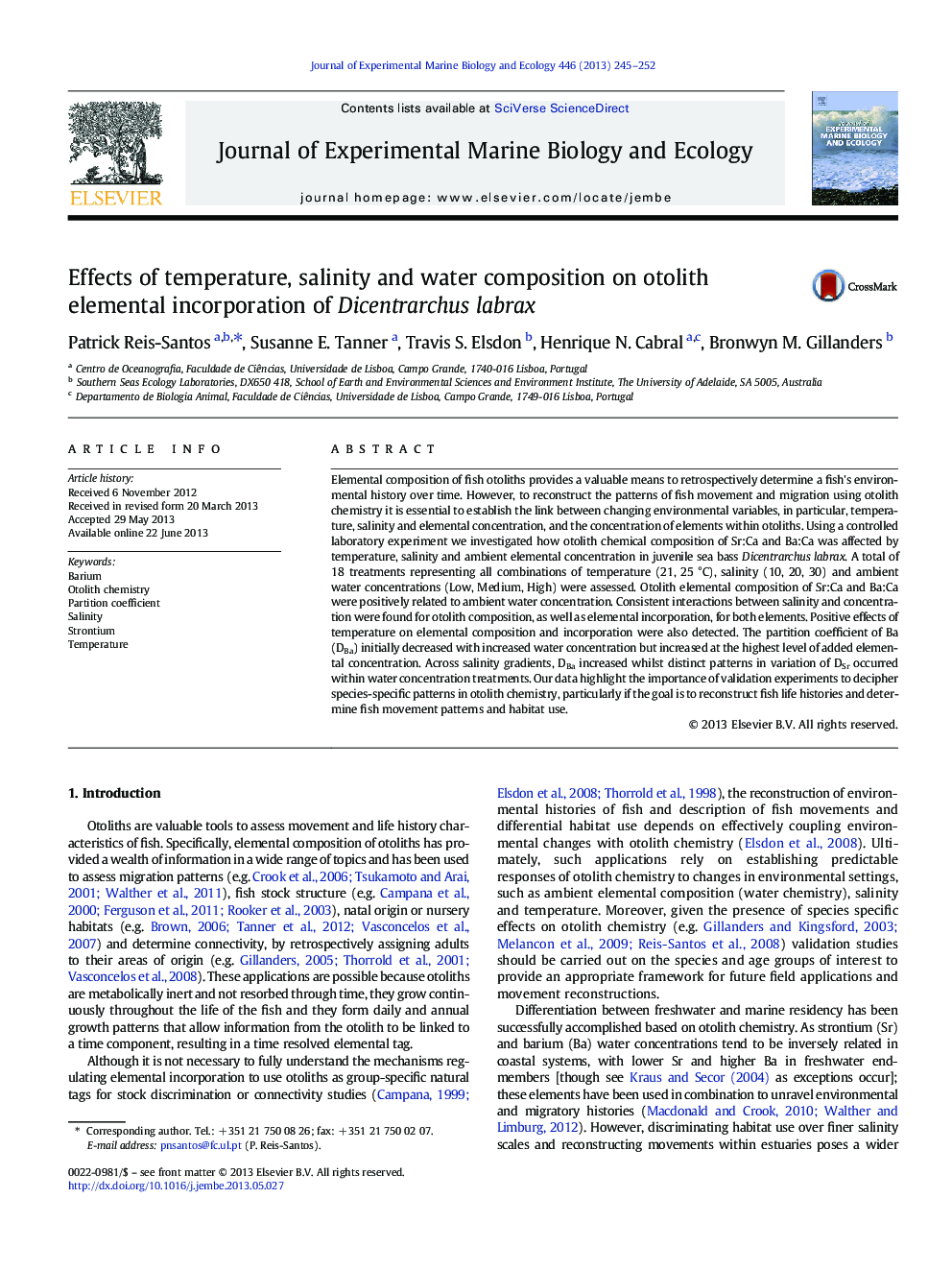| Article ID | Journal | Published Year | Pages | File Type |
|---|---|---|---|---|
| 4395728 | Journal of Experimental Marine Biology and Ecology | 2013 | 8 Pages |
•Effects of multiple environmental variables on otolith chemistry were investigated.•Temperature, salinity and water concentration effects were simultaneously assessed.•Environmental variables influenced otolith composition and elemental incorporation.•Salinity × concentration interactions significantly affected element:Ca and DMe.•Understanding otolith elemental incorporation is vital to infer fish life histories.
Elemental composition of fish otoliths provides a valuable means to retrospectively determine a fish's environmental history over time. However, to reconstruct the patterns of fish movement and migration using otolith chemistry it is essential to establish the link between changing environmental variables, in particular, temperature, salinity and elemental concentration, and the concentration of elements within otoliths. Using a controlled laboratory experiment we investigated how otolith chemical composition of Sr:Ca and Ba:Ca was affected by temperature, salinity and ambient elemental concentration in juvenile sea bass Dicentrarchus labrax. A total of 18 treatments representing all combinations of temperature (21, 25 °C), salinity (10, 20, 30) and ambient water concentrations (Low, Medium, High) were assessed. Otolith elemental composition of Sr:Ca and Ba:Ca were positively related to ambient water concentration. Consistent interactions between salinity and concentration were found for otolith composition, as well as elemental incorporation, for both elements. Positive effects of temperature on elemental composition and incorporation were also detected. The partition coefficient of Ba (DBa) initially decreased with increased water concentration but increased at the highest level of added elemental concentration. Across salinity gradients, DBa increased whilst distinct patterns in variation of DSr occurred within water concentration treatments. Our data highlight the importance of validation experiments to decipher species-specific patterns in otolith chemistry, particularly if the goal is to reconstruct fish life histories and determine fish movement patterns and habitat use.
